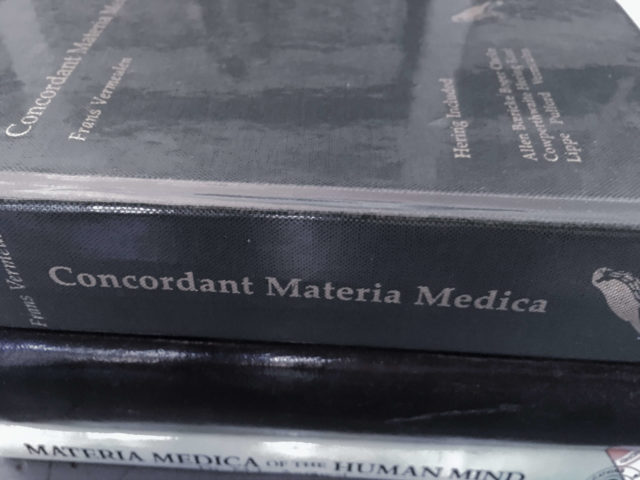How does Homeopathy work?
One of the reasons homeopathy can be so tricky to grasp is because it requires a leap of understanding of concepts. Concepts which are outside the box of mainstream science. Many people dismiss homeopathy outright because we homeopaths use highly diluted substances of all kinds. How could anything so diluted possibly have any effect on the body? It’s no wonder homeopathy is such an enormous stretch for those steeped in mainstream science.
But here’s the thing. Homeopathy may not happily be acknowledged by the limited orthodox view. However, when we start looking at molecular physics, there are some remarkable discoveries made in recent years. We find that the mysteries of homeopathy look positively tame in comparison. Here’s an article I just found in a very mainstream publication about teleportation. A technology previously residing firmly in the domain of science fiction.
Let’s challenge the statement I hear all too often. The statement that there’s no research behind homeopathy. Well, here’s my excuse to link a website that is a fantastic resource and I’d love an excuse to pop it in. Here is an exhaustive list of quality research in the field of homeopathy, as well as other resources.
But what is Homeopathy? Here’s what I tell my clients
I’m going to start by describing what I tell my clients in our first consultation to give them an idea of what to expect. I usually say to them that I’m going to be asking them a whole lot of questions. Many of which seem to have no relation to the reason why they’ve come in. This gives me an understanding of how that person responds as a whole to their environment, and what kind of triggers they have, whether physical, emotional or mental. We homeopaths recognise that the immune system is not just limited to the physical body, and their symptoms are not isolated entities occurring randomly for no reason.

A homeopath needs to ask many questions
Chronic stress and emotional allergy
For example, have you ever heard of an emotional allergy? A common example is the neighbour’s chronically barking dog. The dog may eventually trigger an extreme reaction of irritation, despair, frustration or even outright fury if you hear just one bark. The stress of that series of reactions may lead to other symptoms if it keeps occurring on a long-term basis. There are many types of stress and a lot of factors involved in the causes of stress. We have become far more aware these days of the link between chronic stress and a compromised immune system.
How does stress affect your health?
Another example is a recurring issue in a close relationship that might trigger a similar set of feelings to what I described above with the barking dog. These kinds of reactions are very useful to discuss in homeopathy because it helps give us clues about how best to support the whole person in a highly individual way. Everyone has their unique story. Everyone has their patterns of illness, whether it be frequent physical ailments or mental/emotional issues, or both.
So, to put things in a nutshell, we treat the person, not just the symptom, so we don’t refer to a client as ‘the hay fever case.’ We would call them ‘the person with a case of hay fever.’ There is a subtle but vital difference, and it lies at the core of homeopathy to put the person first.
How is this relevant to Homeopathic Treatment?
Moving on for a moment to homeopathic remedies. A full list of homeopathic remedies is theoretically impossible to achieve as there are new remedies always being discovered and the possibilities are endless! There are apparently over 8000 homeopathic remedies in existence these days, each with its own detailed, individual set of characteristics and symptoms that we call a remedy picture. A homeopath’s aim is to be able to match the person’s individual set of symptoms, triggers and personality characteristics, to the closest possible remedy picture from our extensive materia medica. It’s a little like a detective trying to match clues left at a crime scene, to gain a thorough understanding of events leading up to it, in the hopes they might solve the case.

A full list of homeopathic remedies would be endless
To give you an example, if someone came in who was suffering from hay fever which made their eyes sting and tear up as though they’d been chopping up onions, I would consider giving them a homeopathic preparation of onion, called Allium cepa. Allium cepa has its own set of symptoms in its remedy picture, covering far more than just irritated eyes.
Giving a matching homeopathic remedy (which we call the similimum), stimulates the immune system in a very specific way. It’s as though the nudge given by the remedy provides an opportunity for the immune system to get a good, long, hard look at itself in a way it hasn’t done before. This forms the basis of how homeopathy works in the body and its underlying principle – that of like cures like, the concept of which has been in existence for many centuries.
How are Homeopathic remedies made?
I’m going to travel down a different path with you now before talking about how remedies are made – that of data storage. We as a society are familiar with substances storing data. We only have to look at the silicon chip to know that certain minerals hold great capacity for carrying and transmitting information. At present, we need a computer for us to interact with the data stored, but what if this is only a stage until our understanding expands?
Let us, for a moment, open our minds to the possibility that other naturally occurring substances can also store information, in ways that our bodies can instantly recognise. If we can so happily accept the capacity of mineral structures to carry information, why are we so quick to dismiss the one substance that is a basic requirement for every single life form on Earth – water?
The idea that water can store information from a substance it has been exposed to is far from new. The biggest mystery is why the findings of eminent scientist Jacques Benveniste were so vehemently dismissed by orthodox science at the time. Had those findings been embraced, we can only imagine how that thread of technological advances might have benefited our society.
The mechanism as to how water stores the medicinal effects in homeopathic remedies has been the subject of much debate. From the presence of nanoparticles discovered in the remedies to the recent discovery of even more microscopic water structures.The latest wave of research has found that water possesses truly remarkable qualities. Add to that the fact that the most plentiful substance in our bodies is water, so it makes sense, to me at least, why homeopathic remedies can influence a person so quickly and effectively.

Homeopathic remedies from 100 years ago
The reason why I’m talking about storage of information in water is because homeopathic remedies are prepared in a way that defies current mainstream, materialistic science. The remedies are highly diluted, having gone through a series of dilutions and succussions (vigorous shaking). This somehow causes an imprint of the original substance to remain in the liquid even though none of that physical substance remains. Various research studies have been performed in this field to try to isolate subatomic particles, and so far, these have been quite promising. have a look through the links in the previous paragraph.
This means that if your toddler gets hold of a remedy and eats it all at once, we consider that to be one dose because it’s not the physical amount of pills or liquid ingested that causes the effect. It’s all about the repetition of the dose. It makes me think of those sceptics who stood outside the opera house a few years ago. They ate entire vials of homeopathic remedies in one go. They would likely have seen all kinds of powerful results if they had instead taken two pills twice daily over the course of a couple of weeks until the vials were empty.
There are Homeopathic pharmacies around the world which have a list of natural remedies they manufacture. In Australia we access to all of them.
Homeopathy puts the person first
So, to summarise.
- Homeopathy is based on a series of concepts that have existed since ancient times, even though it works in a way that defies current mainstream science.
- Homeopathy also puts the person first, seeing how they interact with their world as a whole, entire being. This allows for support of that person in a thorough and deep-acting way. More than merely focusing on isolated symptoms, and this is especially so in a chronic set of conditions.
- There are branches of science such as quantum physics which are beginning to find ways to explain the mechanism of homeopathy and how it works, which is very inspiring.
Homeopathy? “I for one am super excited to see how our understanding of this enigmatic system of medicine might in years to come bring about a revolution in the field of health” – Penny Barron.

So the mysteries of homeopathy! From the fact that water can store information from a substance it has been exposed to and then the ability as a remedy to help with chronic stress and emotional allergy. I would say homeopathic remedies are worth investigating more.
- The importance of Muscle Mass in menopause - 12/03/2025
- Penny’s gluten free bread recipe - 14/10/2024
- Children and bedwetting: What can parents do to help? - 01/10/2024




Leave a Reply